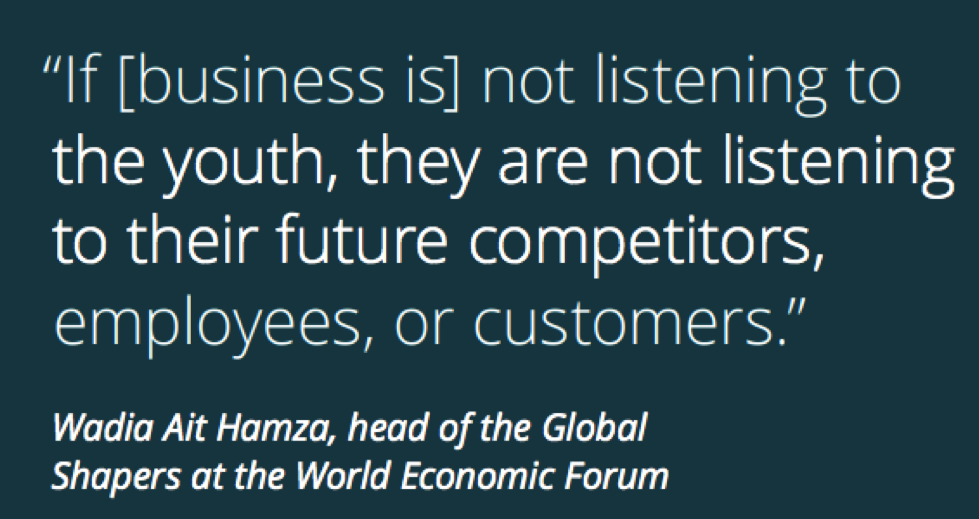Survey of Youth Reveals Opportunities and Barriers to Employment and Skills

Prior to releasing its seminal report, Preparing tomorrow’s workforce for the Fourth Industrial Revolution; For business: a framework for action, the Global Business Coalition for Education (GBC-Education) and Deloitte Global conducted a survey of over five hundred young people ages 15 to 29 around the world to better understand the barriers they face in obtaining the skills needed for a complex and collaborative workforce. The results of the survey – featured in the report – showcase the desire of youth to make better futures for themselves and their communities, yet it also highlights the mismatch between their aspirations and the opportunities given to them.
Here are a few of the most striking survey results and why business should care about the issue of the youth skills gap:
- 39% of youth report that their formal school did not prepare them for the job they want. For young people throughout the world, their education systems are not providing them with the proper tools and knowledge for an increasingly complex workforce. The business community has the opportunity to provide truly relevant workforce training programs outside of the classroom, enabling youth to learn firsthand from employees themselves.
- 79% of youth’s personal career interests do not align with jobs available in their community. Even if a young person is passionate about a certain field of work, he or she may find it difficult to engage with said job if it isn’t available in the first place.
- Youth report barriers and challenges to getting the skills needed for the job they want: of the youth surveyed, 52% said they were unable to find the opportunities relevant to gain the skills they wanted, 50% did not have the financial resources, and 41% didn’t have the proper qualifications to attain the required experience. Other barriers included gender discrimination and various social roadblocks.
- Half all youth surveyed are not working, but 79% of those currently unemployed are actively looking for work: it’s been common to dismiss young people as unwilling to work or not wanting to contribute to society. Yet, evidence shows that youth don’t just want to make a better future for themselves – they want to transform their societies and countries.
With these numbers in mind, it’s critical that business and other policy actors take the youth voice into consideration when tailoring programs for young people throughout the world. Our Youth Skills report used the perspectives from this survey to produce the following recommendation for businesses:
- Align stakeholders’ objectives and approaches
- Engage in public policy
- Develop promising talent strategies
- Invest strategically in workforce training approaches
Download the report to read more about the survey findings and dive deeper into the business recommendations.
